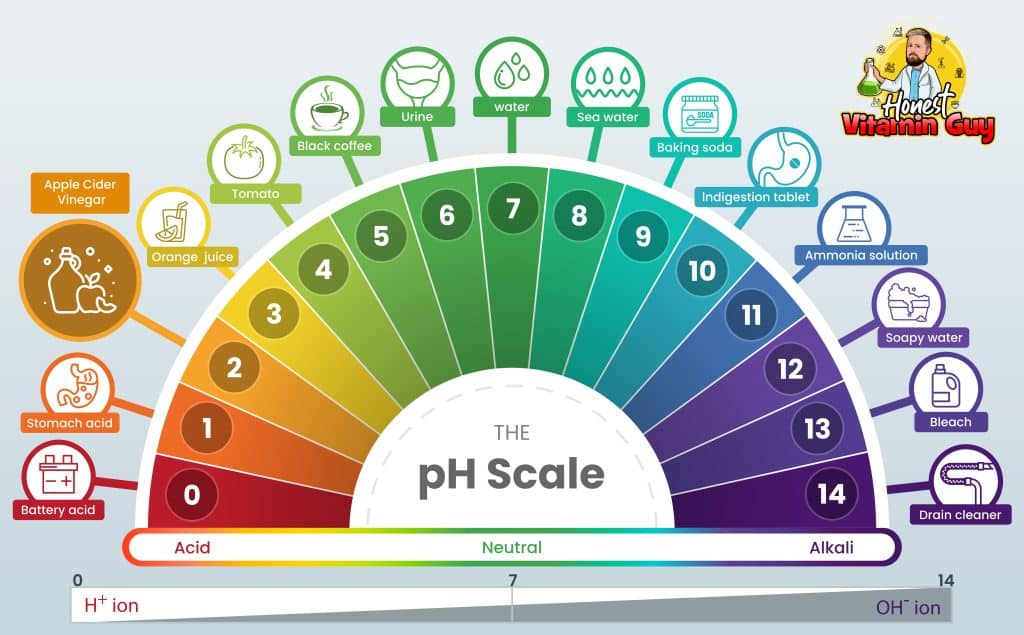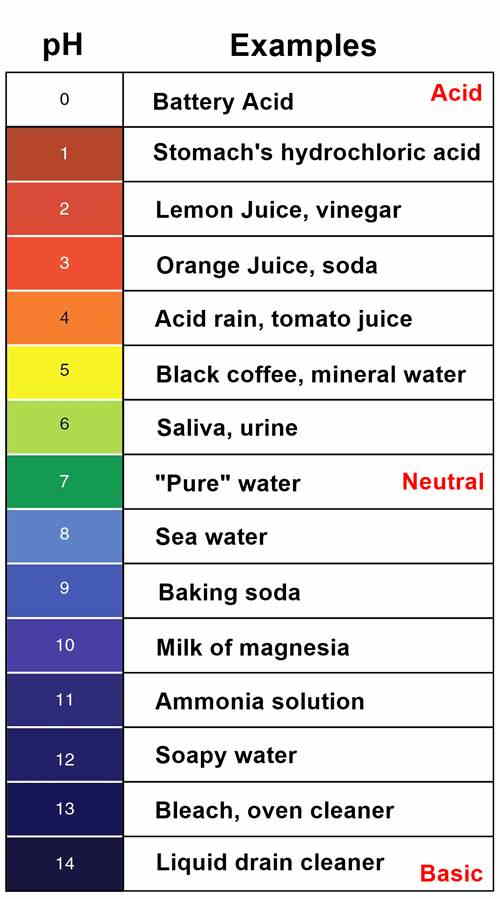Apple Vinegar Acidic Or Alkaline: The Ultimate Guide For Health Enthusiasts
Ever wondered whether apple cider vinegar is acidic or alkaline? Well, you're not alone, buddy. This little wonder liquid has been rocking the health world for ages, and people are still debating its pH properties. So, let's dive into this topic and clear the air once and for all. Whether you're using it for weight loss, digestion, or just as a kitchen staple, understanding its pH nature can make a big difference.
Apple cider vinegar (ACV) has become a household name in recent years, thanks to its incredible health benefits. But the question of whether it's acidic or alkaline keeps popping up. It's like the mystery of the universe, right? Well, fear not, because we're here to break it down for you in the simplest way possible.
Let's face it—ACV is everywhere. From skincare routines to detox drinks, this vinegar is taking the world by storm. But with all the buzz around it, it's crucial to know its pH level. Is it a friend or foe to your body's alkalinity? Stick around, and we'll spill all the tea on this topic.
Read also:Julio Immigration Lawyer Your Trusted Ally In Navigating Complex Legal Waters
What Exactly is Apple Cider Vinegar?
Before we dive into the pH debate, let's talk about what apple cider vinegar actually is. ACV is made by fermenting apples with yeast and bacteria. The result? A tangy, sour liquid that's packed with goodness. It's like magic in a bottle, honestly. But here's the kicker—its pH level plays a huge role in how it interacts with your body.
The Science Behind Apple Cider Vinegar
When apples are fermented, they produce acetic acid, which gives ACV its signature tang. Now, here's the fun part—this acetic acid is what makes ACV acidic. But wait, there's more. Once it hits your stomach, something magical happens. It starts to metabolize into alkaline compounds. Confusing, right? Don't worry, we'll explain it all in the next sections.
Is Apple Vinegar Acidic or Alkaline?
Alright, here's the million-dollar question—Is apple cider vinegar acidic or alkaline? The short answer is both. Confused? Let me break it down for ya. ACV is acidic in its natural state, with a pH level ranging from 2.4 to 3.0. But, when it's digested, it has an alkalizing effect on the body. Yeah, science is wild like that.
Why Does pH Matter?
The pH level of anything you consume can affect your body's internal balance. An overly acidic diet might lead to health issues, while an alkaline diet could promote better overall health. So, understanding how ACV interacts with your body's pH is key. It's like finding the perfect balance between yin and yang, but with food.
Health Benefits of Apple Cider Vinegar
Now that we've cleared up the pH confusion, let's talk about why ACV is such a big deal. This vinegar isn't just a pantry staple; it's a health powerhouse. Here are some of its amazing benefits:
- Promotes Digestion: ACV helps stimulate stomach acid production, aiding digestion.
- Supports Weight Loss: Studies suggest that ACV might help reduce appetite and burn fat.
- Regulates Blood Sugar: It can improve insulin sensitivity and lower blood sugar levels.
- Boosts Skin Health: ACV has antibacterial properties that can benefit your skin.
How Does pH Affect These Benefits?
The alkalizing effect of ACV in your body might enhance its health benefits. For instance, maintaining an alkaline balance can improve energy levels and reduce inflammation. But remember, balance is key. Overdoing it with ACV might lead to negative effects, so moderation is your best friend.
Read also:Brick And Bones Backyard Photos Transform Your Outdoor Space Into A Masterpiece
How to Use Apple Cider Vinegar Safely
Now that you know all about ACV's pH and benefits, let's talk about how to use it safely. While it's a superfood, it's also quite potent. Here are some tips to keep in mind:
- Dilute It: Always mix ACV with water before drinking to avoid damaging your teeth or throat.
- Start Small: Begin with a teaspoon and gradually increase to a tablespoon if your body tolerates it.
- Consult a Doctor: If you have any health conditions, it's always wise to check with a healthcare professional first.
Common Mistakes to Avoid
Some folks go overboard with ACV, thinking more is better. But trust me, that's not the case. Consuming too much can lead to stomach upset, erosion of tooth enamel, and even nutrient deficiencies. So, keep it in check, folks.
Apple Cider Vinegar and Diet: The Alkaline Connection
Many people are turning to alkaline diets for better health, and ACV fits right into this trend. The alkalizing effect of ACV can help balance your body's pH, promoting overall well-being. But here's the deal—ACV isn't a magic bullet. It's just one piece of the puzzle. A balanced diet rich in fruits and veggies is still the foundation of good health.
Alkaline Foods to Pair with ACV
Want to boost the alkalizing power of ACV? Pair it with these alkaline foods:
- Lemons
- Kale
- Spinach
- Avocado
- Broccoli
Together, they can create a powerhouse combo that supports your body's pH balance.
Apple Cider Vinegar: Myth vs. Fact
There's a lot of hype around ACV, but not all of it is true. Let's debunk some common myths:
- Myth: ACV cures everything.
- Fact: While it has many benefits, it's not a miracle cure. It's just one tool in your health toolkit.
- Myth: You can drink it straight.
- Fact: Never drink ACV undiluted. It's too harsh on your teeth and throat.
Scientific Backing for ACV
Studies have shown that ACV can help with blood sugar regulation and weight management. For example, a study published in the Journal of Functional Foods found that ACV improved insulin sensitivity in people with type 2 diabetes. So, while it's not a cure-all, it definitely has some science-backed benefits.
Tips for Incorporating Apple Cider Vinegar into Your Routine
Ready to give ACV a try? Here are some creative ways to add it to your daily routine:
- Salad Dressing: Use ACV as a base for your salad dressings for a tangy kick.
- Detox Drinks: Mix a tablespoon of ACV with water and lemon for a refreshing drink.
- Skincare: Dilute ACV with water and use it as a natural toner for glowing skin.
How Often Should You Use It?
Like anything else, moderation is key. Start with a small amount and see how your body reacts. Most people find that using it once or twice a day is enough to reap its benefits without any negative side effects.
Conclusion: Apple Vinegar Acidic or Alkaline—What's the Verdict?
So, there you have it—the lowdown on apple cider vinegar's pH properties. While it's acidic in its natural state, it has an alkalizing effect on the body once consumed. This little liquid powerhouse is definitely worth incorporating into your routine, but always in moderation.
Here's what we've learned:
- ACV is acidic with a pH of 2.4–3.0, but it becomes alkaline in the body.
- It offers numerous health benefits, including aiding digestion and regulating blood sugar.
- Use it safely by diluting it and starting with small amounts.
Now, it's your turn. Have you tried apple cider vinegar? What's your favorite way to use it? Drop a comment below and share your thoughts. And don't forget to share this article with your friends who might find it helpful. Together, let's spread the word about this amazing vinegar and its pH secrets.
Table of Contents
- What Exactly is Apple Cider Vinegar?
- Is Apple Vinegar Acidic or Alkaline?
- Health Benefits of Apple Cider Vinegar
- How to Use Apple Cider Vinegar Safely
- Apple Cider Vinegar and Diet: The Alkaline Connection
- Apple Cider Vinegar: Myth vs. Fact
- Tips for Incorporating Apple Cider Vinegar into Your Routine
- Conclusion: Apple Vinegar Acidic or Alkaline—What's the Verdict?


